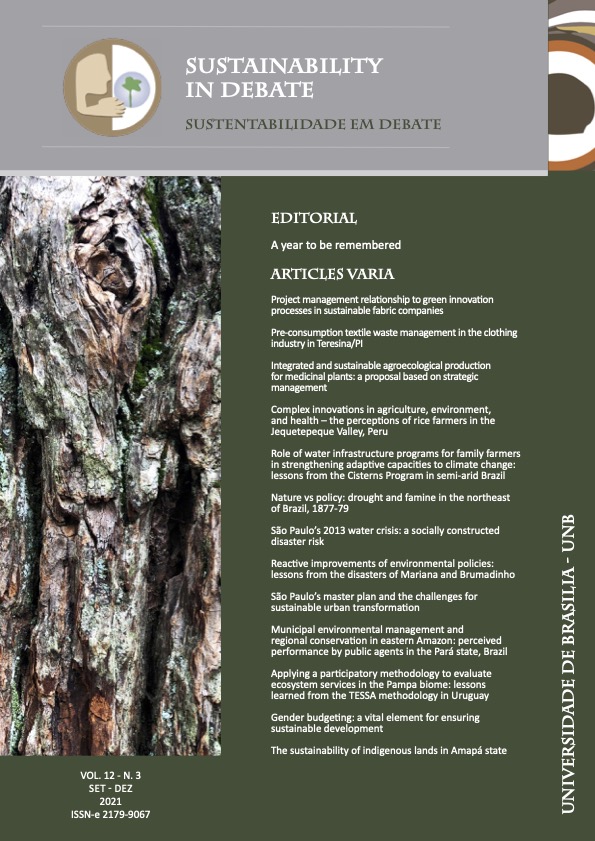Gender budgeting: a vital element for ensuring sustainable development
DOI :
https://doi.org/10.18472/SustDeb.v12n1.2021.38824Mots-clés :
Gender gap index. Gender parity. Gender budgeting. Public policy effectiveness. World countries.Résumé
The article aims to highlight the latest approaches to the introduction of countries gender budgeting. The authors propose the application of the method of ranking countries based on 4 key indicators related to the gender gap (Economic participation and opportunity, Educational attainment, Health and survival, Political empowerment) of the Global gender gap index and then analyse the result considering the level of socio-economic development of each country. Ten sample countries were randomly chosen. The results of the study confirmed the mutual influence between the gender gap and socio-economic development. The proposed method of ranking countries compared to socio-economic, political and environmental development allows countries with a high value of the gender gap index to offer specific tools to reduce it. The research conducted can help improve existing practices, facilitate initiatives to develop gender parity and further work on geographical and sectoral orientation.
Téléchargements
Téléchargements
Publié-e
Versions
- 2022-01-11 (2)
- 2021-12-28 (1)
Comment citer
Numéro
Rubrique
Licence
(c) Tous droits réservés Sustainability in Debate 2021

Cette œuvre est sous licence Creative Commons Attribution - Pas d'Utilisation Commerciale - Pas de Modification 4.0 International.
SUSTAINABILITY IN DEBATE – Copyright Statement
The submission of original scientific work(s) by the authors, as the copyright holders of the text(s) sent to the journal, under the terms of Law 9.610/98, implies in the concession of copyrights of printed and/or digital publication to the Sustainability in Debate Journal of the article(s) approved for publication purposes, in a single issue of the journal. Furthermore, approved scientific work(s) will be released without any charge, or any kind of copyright reimbursement, through the journal’s website, for reading, printing and/or downloading of the text file, from the date of acceptance for publication purposes. Therefore, the authors, when submitting the article (s) to the journal, and gratuitous assignment of copyrights related to the submitted scientific work, are fully aware that they will not be remunerated for the publication of the article(s) in the journal.
The Sustainability in Debate Journal is licensed under Creative Commons License – Non-Commercial-No-Derivation Attribution (Derivative Work Ban) 3.0 Brazil, aiming at dissemination of scientific knowledge, as indicated on the journal's website, which allows the text to be shared, and be recognized in regards to its authorship and original publication in this journal.
Authors are allowed to sign additional contracts separately, for non-exclusive distribution of the works published in the Sustainability in Debate Journal (for example, in a book chapter), provided that it is expressed the texts were originally published in this journal. Authors are allowed and encouraged to publish and distribute their text online, following publication in Sustainability in Debate (e.g. in institutional repositories or their personal pages). The authors expressly agree to the terms of this Copyright Statement, which will be applied following the submission and publishing by this journal.






